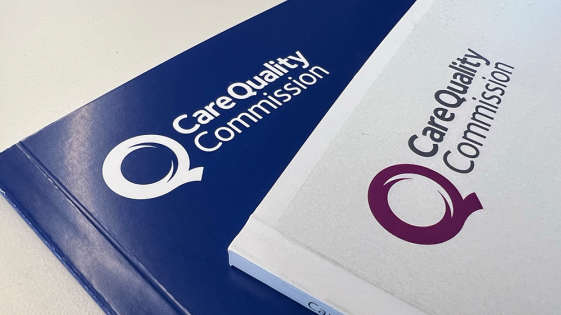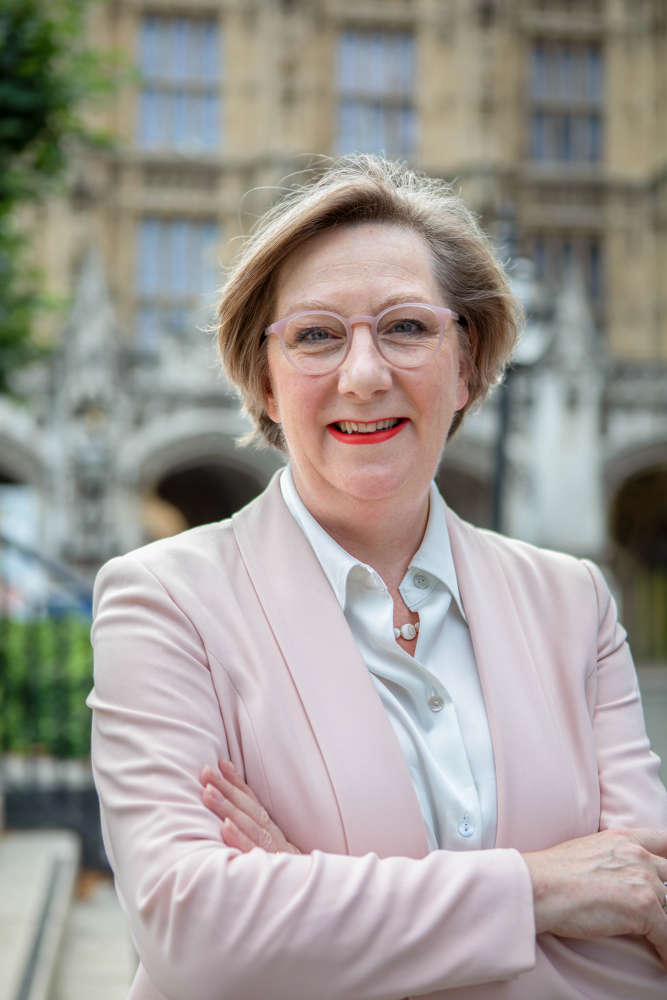
An academic at the University of Chester has warned that the COVID-19 pandemic could have a ‘monumental’ impact on the charity sector.
Dr Tim Brown, Senior University Teaching Fellow, has posted a blog that discusses how the Third Sector and charities in particular have been flooded for requests for help, but may need support themselves to survive.
Tim explains that charities exist to bridge the gap between the public services and the needs of communities in a variety of ways, including: providing medical support or research; assisting those in poverty; support families in need; providing mental health support and guidance; providing education; assisting the advancement of sport; protecting the environment and animal welfare; and advancing the arts.
Last night (April 8 2020) the Government announced a £750 million lifeline to help the charity sector, and in particular to supporting charities with a specific emphasis on:
- hospices to help increase capacity and give stability to the sector
- St John Ambulance to support the NHS
- Victims’ charities, including domestic abuse, to help with potential increase in demand for charities providing these services
- vulnerable children’s charities, so they can continue delivering services on behalf of local authorities
- Citizens Advice to increase the number of staff providing advice during this difficult time.
There are approximately 168,000 charities in the UK with an income of £77 billion, according to Charity Commission data for 2018. Of this, over £70 billion comes from voluntary income such as donations, gifts, legacies and grants, trading incomes such as events, shops and lotteries and charitable activities such as the provision of services.
Tim said: “The current COVID-19 lockdown is having a monumental impact on many of these charities’ ability to provide the frontline support that is needed, with many charities reporting a significant rise in demand whilst facing a significant reduction in income. For example, food banks are struggling to get enough supplies to support families in need, and some have even had to close their doors. Similarly, Age UK has been flooded with calls for help from vulnerable older people in the community with a reduced workforce, and funds, to provide the support that is needed.”
Tim says that in these unprecedented times it is estimated that the charity sector will lose up to £4 billion in the next few months but the cost could be greater. Tim, who is also the Programme Leader for Events Management at the University, suggests that is due to how charities rely on fundraising events as a source of income, especially for smaller charities.
He added: “In the last 15 years fundraising events have become a significant income generator for charities. Whilst larger charities only generate approximately 5% of income from events it is the smaller charities, which can generate as much as 50% of all annual income from events, that will be the most affected.
“The growth of income from fundraising events has been steady year on year as the public's appetite for supporting charities has changed to create an altruistic paradox - people are willing to give to charities but expect something in return (a tangible benefit to giving) - and events have been an excellent answer to this need. People feel good about supporting a cause whilst being able to benefit from an event or activity. This is not necessarily a bad thing and charities have been able to capitalise on this to engage new supporters to their cause.
“The lockdown, however, has resulted in the cancellation of thousands of events - such as the London Marathon which raised £66 million in 2019 for a wide array of charitable causes. As spring and summer play host to the majority of these charity fundraising events, the true cost (or loss) could be as much as £5 billion from this one source of income alone. And this does not factor in the financial impact on the supply chain.
“Of the 168,000 charities in the UK, only 0.7% have an income greater than £10 million annually. This leaves over 99% of charities in a very precarious financial position as the overwhelming majority are very small and designed to support a very specific cause and need. That cause and need will continue to exist, even if the charity does not - that is the dilemma.”
Tim added: “The government also outlined they will match donations raised via the planned Big Night In fundraiser on BBC television on Thursday, April 23 to the National Emergencies Trust (with a minimum pledge of £20 million). This event could provide a pivotal moment in live telethon fundraising. The British public's generosity is evident annually through similar televised fundraisers such as Comic Relief and Sport Relief but never in such extraordinary circumstances. The Big Night In could provide a platform for the public to support the hundreds of thousands of volunteers, NHS staff, and key workers who have been looking after us all during the crisis. And with the match funding being promised this event could break fundraising records - and I hope so.
“The £750 million is a significant lifeline, but it is just that - a lifeline. It represents less than 1% of income for the sector. It also means that whilst many charities will benefit, many more will not.”
Tim explains that the Government outlined the tens of thousands of charities providing vital services will benefit from direct cash grants to ensure they can meet increased demand as a result of the virus as well as continuing their day-to-day activities supporting those in need.
He added: “With over 168,000 charities in the UK this will result in the overwhelming majority still missing out. The biggest omission from the Government briefing concerns food banks. In January 2020, the Trussell Trust reported there had been a 23% increase in the number of food parcels they had distributed between April and September 2019, compared with the same period in 2018. The demand for food banks has increased year on year, with the Trussell Trust also reporting that over a third of food requests related to children. Whilst some funding will hopefully trickle down to food banks (and other local charities who support their communities) it will still not be enough. With nearly a million people registering for universal credit (as of the 1st April) the need for local community support, predominately from charities, will be greater than ever.
“So, come April 23, lets dig deep, very deep, to show our support and gratitude for these amazing and often life-saving charities. Whatever happens it will be a new charitable landscape that emerges in the coming months.”
Full details on the Government’s £750 million support can be found here: https://www.gov.uk/government/news/chancellor-sets-out-extra-750-million-coronavirus-funding-for-frontline-charities

 Ninja Sword amnesty launched ahead of legislation change
Ninja Sword amnesty launched ahead of legislation change
 Charity Walking Tour in Support of the Hospice of the Good Shepherd
Charity Walking Tour in Support of the Hospice of the Good Shepherd
 CURTAIN SET TO RISE ON BLACK COMEDY OF BAD MANNERS
CURTAIN SET TO RISE ON BLACK COMEDY OF BAD MANNERS
 Three members of Lucy Letby hospital's senior leadership team arrested
Three members of Lucy Letby hospital's senior leadership team arrested
 Man charged in relation to drugs offences in Chester
Man charged in relation to drugs offences in Chester
 FROM ORPHAN TO VILLAIN, CARLY LANDS DREAM ROLE IN MUCH-LOVED MUSICAL
FROM ORPHAN TO VILLAIN, CARLY LANDS DREAM ROLE IN MUCH-LOVED MUSICAL
 What's On At Jodrell Bank Over The Summer
What's On At Jodrell Bank Over The Summer
 Teenager summonsed to court for driving offences in Tarporley
Teenager summonsed to court for driving offences in Tarporley
 Fundraising duo from Flintshire and Essex to walk 350km in just 7 days for breast cancer charity
Fundraising duo from Flintshire and Essex to walk 350km in just 7 days for breast cancer charity
 Citizens Advice Flintshire introduce a new drop-in service
Citizens Advice Flintshire introduce a new drop-in service
 Students build Lego Lovell Telescope to celebrate cosmic legacy
Students build Lego Lovell Telescope to celebrate cosmic legacy
 Man jailed following assaults in Chester
Man jailed following assaults in Chester
 Flintshire Council fly the flag in support of Armed Forces Week
Flintshire Council fly the flag in support of Armed Forces Week
 CQC takes action to protect people at Cheshire care home
CQC takes action to protect people at Cheshire care home
 Kaleidoscope Festival Returns to Storyhouse for 2025
Kaleidoscope Festival Returns to Storyhouse for 2025
 Flintshire Futures Event
Flintshire Futures Event
 Local MP Welcomes Grassroots Sport Funding Boost for Chester North and Neston
Local MP Welcomes Grassroots Sport Funding Boost for Chester North and Neston
 CELEBRATE THE MUSIC OF THE MOVIES WITH SPECTACULAR CONCERT AT CHESTER CATHEDRAL
CELEBRATE THE MUSIC OF THE MOVIES WITH SPECTACULAR CONCERT AT CHESTER CATHEDRAL
 CATHEDRAL SET TO HOST SPECTACULAR PHILHARMONIC OPERA GALA
CATHEDRAL SET TO HOST SPECTACULAR PHILHARMONIC OPERA GALA
 CURTAIN SET TO RISE ON PREMIERE OF VIDEO GAME THEMED PLAY
CURTAIN SET TO RISE ON PREMIERE OF VIDEO GAME THEMED PLAY